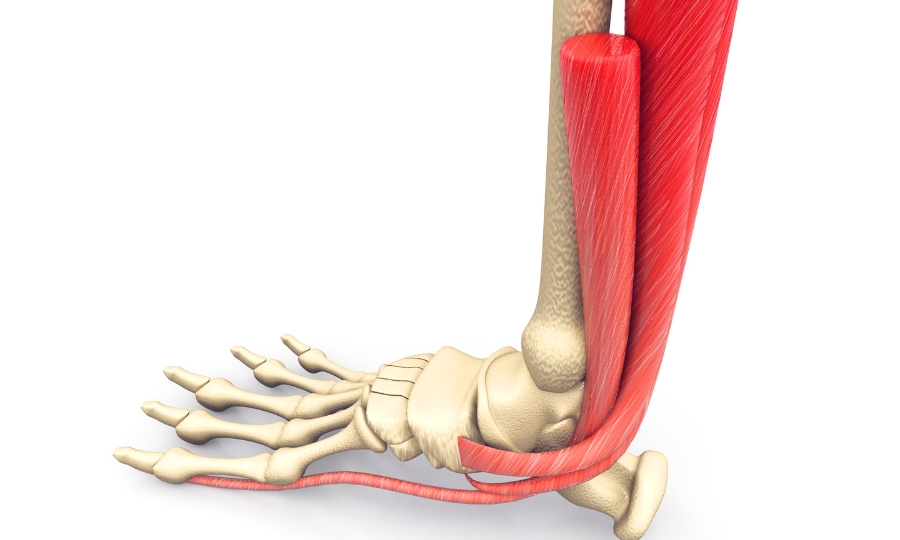“I’ve dealt with a lot of injuries over the years, and you just learn about pain management and how to keep yourself in the best shape to play on Sunday, and then playing with pain.” — Aaron Rodgers
We wanted to start off with a quote by a prominent athlete that is overcoming an injury and how he feels about pain. Obviously, Aaron Rodgers line of work is different than ours because in football you play through injuries every week while trying to stay as in shape as possible. Our injuries and how we deal with pain are a little different but the same in the way that we’ll endure an injury and go to work each day without proper treatment. But overcoming that pain doesn’t have to be a condition for you. For the purposes of this article, we want to discuss some of the ways you can start getting relief from Metatarsalgia Pain.
What is Metatarsalgia?
 We’ll discuss getting relief from Metatarsalgia Pain shortly because if you’ve never heard of Metatarsalgia, then we’d like to let you know exactly what it is. WebMD defines it as, “Metatarsalgia is a common overuse injury. The term describes pain and inflammation in the ball of the foot. It is often thought of as a symptom of other conditions, rather than as a specific disease.” Metatarsalgia pain is prevalent in high-impact sports, so think of Aaron Rodgers and the NFL players with all the running around and force they end up hitting each other with. The drive they use from their feet to deliver a blow, make a cut during a run, or in Aaron Rodgers case, step into the field while trying to throw the ball down field. Athletes playing tennis, soccer, baseball and especially track and field are susceptible to Metatarsalgia pain.
We’ll discuss getting relief from Metatarsalgia Pain shortly because if you’ve never heard of Metatarsalgia, then we’d like to let you know exactly what it is. WebMD defines it as, “Metatarsalgia is a common overuse injury. The term describes pain and inflammation in the ball of the foot. It is often thought of as a symptom of other conditions, rather than as a specific disease.” Metatarsalgia pain is prevalent in high-impact sports, so think of Aaron Rodgers and the NFL players with all the running around and force they end up hitting each other with. The drive they use from their feet to deliver a blow, make a cut during a run, or in Aaron Rodgers case, step into the field while trying to throw the ball down field. Athletes playing tennis, soccer, baseball and especially track and field are susceptible to Metatarsalgia pain.
Causes of Metatarsalgia Pain
Let’s talk about all the causes of this pain before we inform you of the ways of getting relief from Metatarsalgia Pain. Above we told you that high-impact sports are the reasons why you see a lot of athletes suffering from Metatarsalgia Pain. Like many injuries you sustain, your body will start to find ways to overcompensate for that injury. Your body will try to balance out the pain, so you can work through it while never healing itself properly. This alteration in your body’s biomechanics leads to an abnormal weight distribution. Also, on-going stress can lead to constant inflammation of the bone and all adjacent tissues. Below is a list of conditions that have been known to cause Metatarsalgia Pain:
- High level of activity
- Prominent metatarsal heads
- Tight toe extensors (muscles)
- Weak toe flexors (muscles)
- Hammertoe deformity
- Hypermobile first foot bone
- Tight Achilles tendon
- Excessive pronation (side-to-side movement of the foot when walking or running)
- Ill-fitting footwear
Getting Relief from Metatarsalgia Pain
The first thing to do for getting relief from Metatarsalgia Pain is to have an evaluation done. During these evaluations a number of things will and can be done. A Bone Scan, UltraSound and MRI are all ways that will help us pinpoint the location of inflammation, identify conditions like bursitis, and to determine other causes of the metatarsal pain like traumatic disorder, circulatory issues and so much more.
After our evaluation, getting relief from Metatarsalgia Pain may start with you needing to remain off your feet for at least 24 hours. During this time, you will be asked to apply ice and an application bandage. We will also take you through some range of motion techniques all to understand your pain at the onset. At Pain and Performance Solutions, we will monitor your Metatarsalgia recovery with an emphasis on gradually returning you to peak performance. We will monitor your stretching and strengthening exercises, so you don’t add unnecessary stress to the affected area.
Moving forward with Pain and Performance Solutions and Metatarsalgia Pain
At the end of the day, getting relief from Metatarsalgia Pain isn’t something to worry about. The overall goal for us is to restore normal biomechanics and relieve pressure in the symptomatic area. Therapy needs to allow the inflammation to subside or resolve by relieving the repeated excessive pressure. The best way to overcome this type of pain is to get help. Don’t ignore the pain and think it’ll go away. This thinking always leads to more harm in the long run. Set up a consultation with us, an Orthopedist or a Podiatrist. Getting relief from Metatarsalgia Pain is the goal, but it’s also our goal to get your body working at the healthiest level it possibly can. There won’t be a timetable, so patience will be important. If you are suffering from Metatarsalgia pain, contact us at (707) 636-4404 or fill out our online contact form to book a consultation.
The Importance of Footwear in Preventing Metatarsalgia
While many factors can lead to Metatarsalgia, one often overlooked cause is the role of improper footwear. Wearing shoes that don’t provide adequate arch support or cushioning can exacerbate foot pain, particularly in high-impact activities. Tight or narrow shoes can compress the toes, increasing pressure on the ball of the foot, which ultimately leads to discomfort or more severe conditions like Metatarsalgia. Footwear that doesn’t match your foot structure or activity level can significantly affect your biomechanics, contributing to imbalanced weight distribution across your foot.
To prevent or alleviate Metatarsalgia pain, consider footwear designed for your specific needs. Opt for shoes with a roomy toe box, adequate arch support, and cushioned insoles that absorb impact. For athletes or those engaged in high-impact sports, replacing worn-out shoes regularly is crucial to maintaining proper foot health. Studies have shown that using well-cushioned shoes can reduce stress on the metatarsal bones by as much as 30%, preventing the onset of pain (source: Foot & Ankle Research Journal). So, choosing the right footwear isn’t just about comfort; it’s an investment in your overall foot health and can be a significant factor in preventing recurring pain.

